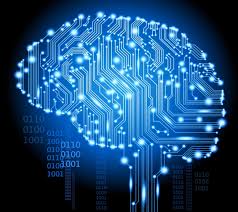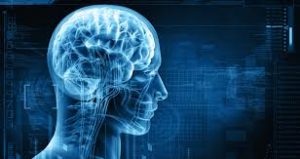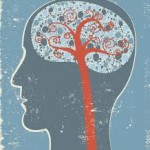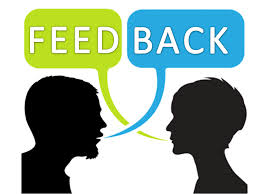An extract from the book The 10 Mental Laws by Barbara Berger
 Just as there are physical laws that describe and govern the behavior of physical phenomena, so there are mental laws that describe and govern our thinking and the behavior. The application of these mental laws is what is referred to as mental technology. This a bit like the software that drives how we think and what we do. Here are the 10 laws:
Just as there are physical laws that describe and govern the behavior of physical phenomena, so there are mental laws that describe and govern our thinking and the behavior. The application of these mental laws is what is referred to as mental technology. This a bit like the software that drives how we think and what we do. Here are the 10 laws:
 Neuroscience which is the science of how the brain works has been around for a long time but it has taught us surprisingly little about how the mind works. The few things it has taught though have been articulated very well. This article is about those few things. These are the default, reward, affect, and control core neural networks. The role of these networks and their implications for people managers are now starting to be understood.
Neuroscience which is the science of how the brain works has been around for a long time but it has taught us surprisingly little about how the mind works. The few things it has taught though have been articulated very well. This article is about those few things. These are the default, reward, affect, and control core neural networks. The role of these networks and their implications for people managers are now starting to be understood. It is December 25, 2015. In just a few days, you have an opportunity to start afresh with New Year resolutions. Maybe it’s the weight you wanted to lose, the new skill you wanted to acquire or the leap you wanted to make to start your own business. Now ask yourself how many times you have honored your resolution in all the years that have passed since you started thinking about some strategy for reinventing yourself.
It is December 25, 2015. In just a few days, you have an opportunity to start afresh with New Year resolutions. Maybe it’s the weight you wanted to lose, the new skill you wanted to acquire or the leap you wanted to make to start your own business. Now ask yourself how many times you have honored your resolution in all the years that have passed since you started thinking about some strategy for reinventing yourself. Read any book about organizational success – whether in a multinational or a small business – and the key to organizational success is related to something business-like: leadership, sales, customer care, profitability, etc. Any reference to recreation and fun is almost always as an add-on. For example, a company retreat with balloons and treasure hunts once a year or a sports day or a company lunch once a quarter. HR managers lecture line managers on the need to have such events so their fun-starved staff can get a chance to “loosen up”. Yet staff engagement remains low….
Read any book about organizational success – whether in a multinational or a small business – and the key to organizational success is related to something business-like: leadership, sales, customer care, profitability, etc. Any reference to recreation and fun is almost always as an add-on. For example, a company retreat with balloons and treasure hunts once a year or a sports day or a company lunch once a quarter. HR managers lecture line managers on the need to have such events so their fun-starved staff can get a chance to “loosen up”. Yet staff engagement remains low…. In a world of increasing inter-connectedness and rapid change, there is a growing need to improve the way people work together. The study of the brain is starting to provide some key insights that can be applied in the real world – for example in the work place. Social neuroscience explores the biological foundations of the way humans relate to each other and to themselves in terms of emotional regulation, attitudes, stereotyping, empathy, status, fairness, collaboration, persuasion, morality, compassion, deception and trust…
In a world of increasing inter-connectedness and rapid change, there is a growing need to improve the way people work together. The study of the brain is starting to provide some key insights that can be applied in the real world – for example in the work place. Social neuroscience explores the biological foundations of the way humans relate to each other and to themselves in terms of emotional regulation, attitudes, stereotyping, empathy, status, fairness, collaboration, persuasion, morality, compassion, deception and trust… What happens in people’s brains when they receive feedback? It’s hard for human beings to feel they are wrong and it is even harder for them to hear that from others. There is a primal, psychological reason for this. Our brains view criticism as a threat to our survival. Because our brains are ready to protect us at all costs, they go out of their way to make sure we always feel like we’re in the right-even when we’re not…
What happens in people’s brains when they receive feedback? It’s hard for human beings to feel they are wrong and it is even harder for them to hear that from others. There is a primal, psychological reason for this. Our brains view criticism as a threat to our survival. Because our brains are ready to protect us at all costs, they go out of their way to make sure we always feel like we’re in the right-even when we’re not… Remember the last New Year resolution? Remember all the other goals you set for yourself that never came about? So what happened? Was it just a lack of will power..?
Remember the last New Year resolution? Remember all the other goals you set for yourself that never came about? So what happened? Was it just a lack of will power..?
Recent Comments